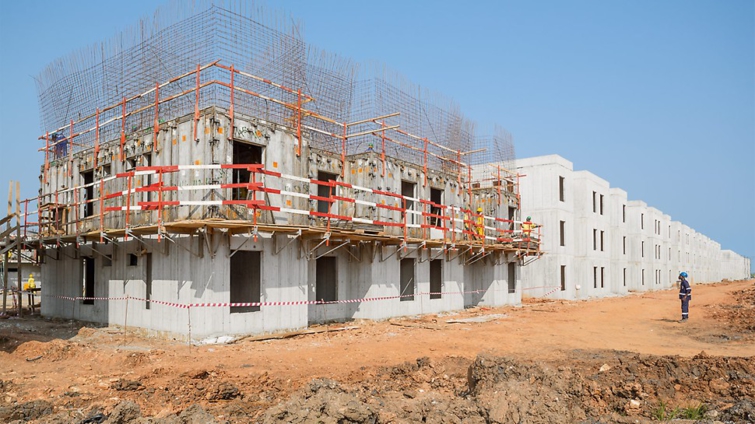Ghana's construction and real estate sector has experienced a remarkable boom in recent years, positioning the country as a significant hub for investment and development in West Africa.
This growth is driven by a combination of factors, including a robust economy, political stability, and an increasing demand for residential, commercial, and industrial properties.
Economic Growth and Urbanization
Ghana's steady economic growth, averaging around 6% per year, has spurred urbanization and increased disposable income, leading to a surge in demand for housing and commercial spaces. Cities like Accra, Kumasi, and Takoradi are expanding rapidly, with new residential developments, shopping malls, office buildings, and industrial parks transforming the urban landscape.
Government Initiatives and Policies
The government of Ghana has implemented several initiatives to support the construction and real estate sector. Programs such as the One District One Factory (1D1F) and the Affordable Housing Project aim to boost industrialization and provide affordable housing to meet the needs of the growing population. These initiatives have attracted both local and international investors, fostering a competitive and vibrant market.
The real estate market in Ghana offers lucrative investment opportunities, particularly in the luxury and middle-income housing segments.
The value of the real estate market in Ghana is projected to reach US$458.52 billion this year.
The rise of gated communities, high-rise apartments, and mixed-use developments reflects the increasing demand for quality living spaces and modern amenities. Additionally, the commercial real estate sector is thriving, with new office complexes, retail centers, and hospitality projects catering to the needs of businesses and tourists.
Challenges and Prospects
Despite its growth, the construction and real estate sector in Ghana faces challenges such as high land costs, regulatory hurdles, and infrastructure deficits. However, ongoing reforms and investments in infrastructure, including road networks, utilities, and public services, are addressing these issues and enhancing the overall investment climate.
Future Outlook
The future of Ghana's construction and real estate sector looks promising, with continued urbanization, economic development, and government support driving sustained growth. As the country positions itself as a regional hub, the sector is expected to attract more foreign direct investment, further boosting development and innovation.
Ghana's construction and real estate sector is on an upward trajectory, offering significant opportunities for investors, developers, and stakeholders. With a favorable economic environment and proactive government policies, the sector is poised to play a crucial role in the country's continued growth and modernization.
Latest Stories
-
Ghana to evacuate citizens from Iran – Foreign Affairs Minister
4 minutes -
BoG expects inflation to trend down further – First Deputy Governor
4 minutes -
Ghana’s embassy in Tehran shut with immediate effect over Iran-Israel war
9 minutes -
‘We never thought they would give us a game like this’ – Kwame Opoku on Golden Kick performance
15 minutes -
Repeal “embarrassing” Dumsor Levy completely – Akosua Manu to government
16 minutes -
Ofori-Atta isn’t running away from accountability; he is simply unwell – Haruna Mohammed
21 minutes -
Go to court and stop prosecuting your cases in the media – Haruna Mohammed to AG
28 minutes -
Investigators find cockpit voice recorder from crashed Air India flight
31 minutes -
Asante Kotoko to feature in next season’s CAF Confederation Cup
36 minutes -
CWC 2025: PSG run riot against 10-man Atletico Madrid
45 minutes -
Government to release DRIP machines for farm road projects – Agric Minister
46 minutes -
Government’s justification for fuel tax suspension ‘a joke’ – MP
50 minutes -
‘We pampered them too long; now they’re biting,’ Franklin Cudjoe says of nurses’ strike
2 hours -
EC to update Parliament on Ablekuma North deadlock this week
2 hours -
Share a Coke magic of finding your name on the iconic bottle returns
2 hours

